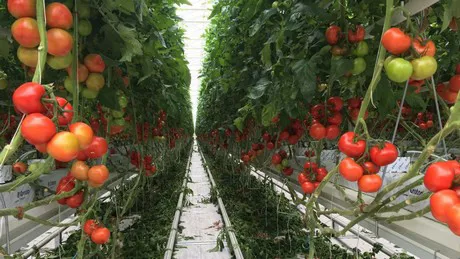In France, 30 km from the pink city of Toulouse, farmer Gilles Briffaud produces hothouse tomatoes for a competitive price thanks to the low-temperature energy supplied by the Econotre eco-centre. Operated by Suez under a public service concession agreement with the Decoset local waste agency covering northern Haute-Garonne (153 municipalities, 970,000 residents), Econotre manages four waste recovery and treatment activities.
Producing heat locally and at low cost
Every year, the 10 hectares of vegetable greenhouses built alongside the Econotre centre are supplied with 25,000 MWh of thermal energy. This recovered heat supplements the 120,000 MWh of electricity already generated by Econotre (equivalent to the consumption of 21,300 homes) by burning 192,000 tonnes of waste.
Sold at €10.13 per MWh, the heat energy halves the energy bills of farmer Gilles Briffaud, the owner and operator of the greenhouses, which will ultimately produce 6,000 tonnes of local tomatoes a year. These favourable conditions have enabled him to extend the greenhouses, which will cover 10 hectares, and create about a hundred local jobs.

Supply heat to the vegetable greenhouses using renewable energy
Econotre represents 25,000 tonnes of recyclable household waste sorted, 30,000 tonnes of bottom ash recovered, 8,000 tonnes of green waste recovered and 3,500 tonnes of compost produced every year. The centre uses incineration to recover the value from household waste generated by the Decoset municipalities.
This processing method exploits the energy generated by burning the waste to produce electricity and heat. Econotre uses the heat released by burning the waste in ovens to produce electricity with a turbo-alternator. Since 2016, the low-temperature energy still available after combustion has been recovered to supply heat to the vegetable greenhouses built alongside the site, rather than being dissipated in the atmosphere.
A model for the circular economy
"This is a circular economy model," declares Gaël Spitz, the SUEZ director of Econotre. Reusing 25,000 MWh per year saves the equivalent of 2,200 tonnes of oil and 6,000 tonnes of CO2. This has created a new activity that has generated 100 jobs, and the tomatoes are consumed locally."
For more information: Suez
Suez
www.suez.com
